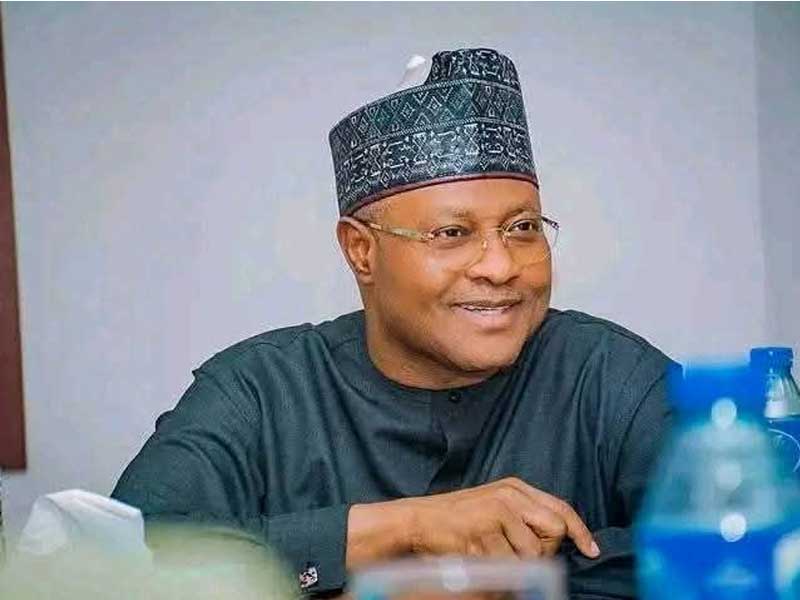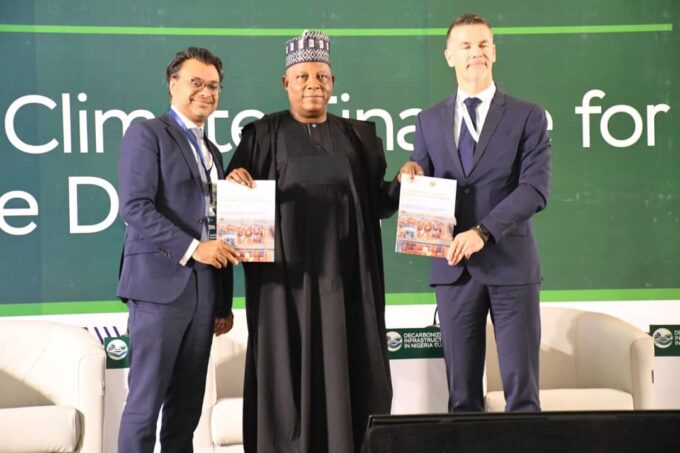Kaduna State eases burden on students by slashing tuition fees, writes
KINGSLEY MUTUWA
It came as a pleasant shock to discover that tertiary institutions in Kaduna have had their fees slashed from between 30% to as much as 50% since 2023. This development only became news when the Kaduna State University chapter of the Kaduna State Students Union was recently inaugurated.
At that event, the Students Union conferred on Governor Uba Sani the Sword of Honour Award for the achievements of his administration, especially the reduction in tuition fees and the establishment of new faculties.
According to the union, Sani has redefined the concept of good governance by prioritising education, infrastructural development and youth empowerment. They particularly pointed out the coming of the “CBN Intervention Project for the Faculty of Engineering at KASU” as testament of Sani’s vision for youth empowerment. They also praised the empathetic directive to allow students owing tuition to write their examination.
“Your directive to KASU management to allow all students to sit for examinations regardless of outstanding fees underscores your deep concern for the less privileged, ensuring that no student is left behind due to financial constraints,” said the Union.
Representing the governor was his principal private secretary, Professor Bello Ayuba. Thanking the students for the award, and the motivation for slashing the tuition, Sani said the policy was targeted at making it easier for students from low-income backgrounds to pursue university education in the state. He promised continuous support and admonished the students to be on their best behaviour and focus on their studies.
“This decision was not just about lowering costs—it was about opening the gates of higher learning to the sons and daughters of ordinary Nigerians,” Sani said.
“This reduction in tuition fees has paved the way for more students from humble backgrounds to bag university degrees with ease in Kaduna State. Government will continue to support students and the youth generally to realize their ambitions.”
This is a great development. What this means is that students attending state-owned tertiary institutions would have less financial worries. Research showed that before the introduction of the policy, fees at Kaduna State University (KASU) were as high as N150,000 per session, while Nuhu Bamali Polytechnic charged as much as N100,000. To many struggling families, these costs were prohibitive. However, with the 30% – 50% reduction, fees at KASU dropped to N105,000, Nuhu Bamali Polytechnic to N50,000, and the College of Education, Gidan Waya, to N37,500.
Education is expensive in many places around the world. However, while some Nigerians only beam their focus on the federal government to do more in terms of alleviating education costs, Kaduna is among the few states directly providing succour to her students by reducing fees. Surely, with the roaring inflation the country is experiencing, any reduction in costs would bring some relief. Also, many students that might have hitherto withdrawn because of high fees can now continue their education. Indeed, in some years to come, this policy would generate some tear-jerking stories from some students that would survive financial difficulties. While this current policy would increase tertiary institution enrolment in the state, it would also ensure that both the students as well as their parents or sponsors would have more money to dedicate to other critical aspects of life such as accommodation, feeding and healthcare which are equally important too.
Watchers of developments in Kaduna should know by now that the Sani administration is not governing by chance, and the positives it is making is not as a result of fluke. Rather, it is a determined and focused work. Take for instance the state’s 2025 budget for education which was set at N206.6 billion or 26.14% of the total budget. This is in accordance with the United Nations recommendation and demonstrates Sani’s commitment to education. Already, by tasking itself with building and equipping 112 new primary and secondary schools, training and recruiting more that 2,000 qualified teachers, Kaduna aims to reverse the misfortune of over 100,000 out-of-school children.
And knowing that education must not always be formal, the Sani-led administration has also invested in vocational training. Towards this end, it is also constructing new vocational training centres in the three senatorial zones. In addition, it has planned for the formalisation of the apprenticeship trainee programme which happens at the Panteka Market. In a one of a kind partnership with the artisans in the market, apprentices would have their training standardised by the National Board for Technical Education (NBTE). They would also be issued certificates to pronounce their proficiency in skills learnt. This move would produce well-trained artisans like plumbers, electricians, carpenters, welders, auto mechanics and others.
By making tertiary education more accessible, the Kaduna State government is not only promoting social equity and inclusion but ensuring it is producing a capable workforce best suited to attract investment, stimulate innovation, and drive economic development in the region. Talk about Human Capital Development.
By May 2023, Kaduna was embroiled in various crises. However, deploying kinetic and non-kinetic methods, the Sani administration is restoring law and order. For example, the Birnin Gwari cattle market which was closed for over a decade is now open. His administration also embarked on constructing over 78 roads covering 775 kilometers, many of them rural roads. The government is remodelling General Hospitals just as a total of 255 healthcare centres are being upgraded. While receiving the award from the Students Union, the governor nudged the students and lecturers on the need for continuous partnership to bring growth and development to the state.
“No meaningful development can be achieved in a state of chaos, disunity and mutual mistrust,” said Sani, referring to the high wave of banditry and kidnapping which the state is just recovering from. “Going by your conduct over the period that I have been at the helm of affairs of our state, you are reliable partners of progress and I can count on you every step of the way.”
While the recognition by the students show they appreciate the governor’s compassion towards realising their ambition, it is not only the students that are happy. Arewa Think Tank (ATT), a northern Nigeria advocacy group, has hailed the school fees reduction policy as a visionary road map which would enhance the impact of education in the state.
“We applaud the governor’s recognition and the need to reduce Kaduna tertiary school fees by 50%,” ATT Convener, Muhammad Alhaji Yakubu, said in a statement.
“This, of course, is a big relief for students as well as their parents and guardians. We see this action by the governor as a major step towards removing barriers to higher education acquisition.”
With each passing day, the governor gets more plaudits from even members of the opposition testifying to his sterling works. While funding would remain a challenge, the policy sets a precedent that other states can follow to make education more accessible and affordable. But as Kaduna continues on its growth trajectory, what the Sani administration needs most now is support and cooperation of all stakeholders in the state.
Mutuwa writes from Kaduna


















Leave a comment